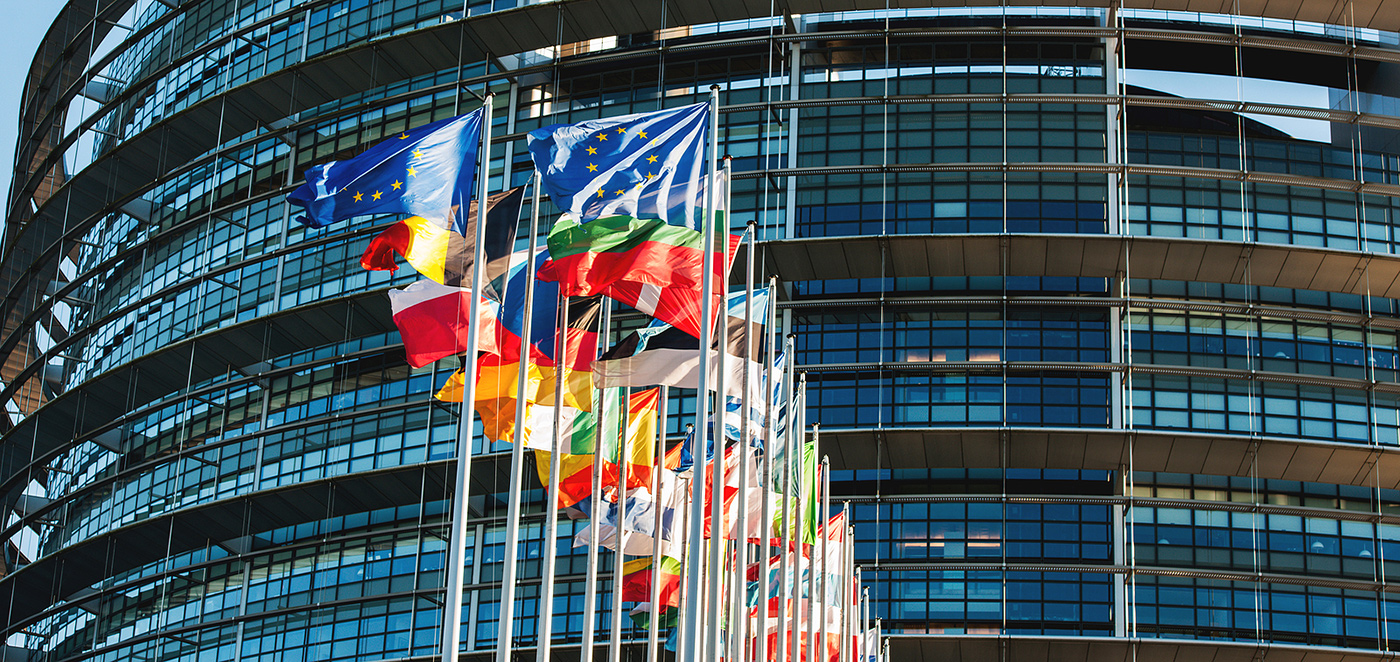Ioannis Tirkides*
A common thread runs through many of the elections taking place around the world this year: a rise in populism and nationalism, a move towards protectionism and centralised power, and a tendency for voters to oust incumbents. There is also a notable anti-war sentiment amid escalating conflicts. This trend is particularly evident in the European elections, where the political landscape is becoming more divided and fragmented. While the centre and centre-right retained a reduced majority in the new parliament, the far right made significant gains and some incumbents, notably in France and Germany, suffered humiliating defeats. These results cannot be decoupled from the socio-economic changes of the past two decades and the state of the economy, nor can they be understood in isolation from war and conflict and the growing divide between the public and its elites. This analysis examines these issues in detail.
European elections: A shift to the right as the mainstream holds
In the European Parliament, the mainstream parties of the centre and centre-right – the European People’s Party of the Christian Democratic tradition, the Socialists and Democrats and the centrist-liberal Renew Europe – saw their collective majority reduced. Their seats in parliament fell from 442 to 401 and their share of the popular vote from 63% to 56%.
Far-right parties, though not homogeneous, increased their seats from 138 to 187 and their share of the vote from 19% to 26%. This may sound modest, but their votes at national level were in many cases significantly higher, notably in France, Italy, Poland, Hungary, Austria and others.
There are three far-right groups in the European Parliament: The Patriots of Europe, which includes France’s National Rally and Hungary’s ruling Fidesz party; the European Conservatives and Reformists, which includes Italy’s Brothers of Italy; and the Europe of Sovereign Nations, which includes Germany’s Alternative for Germany. All prioritise national sovereignty over further European integration, emphasise immigration control and the preservation of national identity. With the exception of the European Conservatives and Reformists, they also oppose continued military aid to Ukraine and favour a diplomatic solution to the conflict.
Anti-war sentiment looms large
The parties that won votes and seats in the European elections tended to be anti-establishment and anti-war, particularly on Ukraine. Anti-war sentiment is larger than the results suggest. A poll by the Eurasia Group’s Institute for Global Affairs, a pro-NATO institution, in its report “The New Atlanticism: Where Americans and Western Europeans Agree and Disagree’, published in June, found that 94% of Americans and 88% of Western Europeans support peace negotiations to end the war in Ukraine. Participants in the survey were asked to choose several reasons for their support for peace negotiations. The most common were the high human cost of the conflict, fears of escalation and concerns about the West’s ability to sustain long-term military support for Ukraine.
Incumbents defeated in France and Germany
At the national level, the election results were more dramatic, particularly in France and Germany. In France, Marine Le Pen’s far-right National Rally won 31.4% of the vote, while the centrist coalition, including Emmanuel Macron’s Renaissance, won an embarrassing 14.6%. In response, Macron dissolved the National Assembly and called new legislative elections, which were held on 30 June and 7 July.
In Germany, the coalition parties that form the government – the Social Democrats, the Greens and the Free Democrats – won a combined 31% of the vote. The far-right Alternative for Germany came second with 15.9%, behind the Christian Democrats with 30%.
The snap election in France
President Macron’s gambit didn’t work but did manage to deny the National Rally a majority in the National Assembly, aided by the manipulative nature of the electoral system.
Specifically, the National Rally, which received the highest number of votes, 37%, received the smallest number of seats, 142, in the 577-seat Assembly. On the other hand, the Popular Front, an alliance of left-wing parties, won the largest number of seats, 188, with only 26% of the vote. Emmanuel Macron’s Ensemble alliance secured 161 seats with 25% of the vote. The result is a hung parliament, which may not bode well for France’s future, but that is another matter.
The French electoral system is designed to be manipulated. It is a two-round system, held on two consecutive Sundays, on a constituency–by–constituency basis. In the first round, only candidates with 50% or more of the vote are elected. The second round is between the top two candidates and those with more than 12.5% of the registered voters in their constituency. It is then a first-past-the-post system. What happened was that the Popular Front of left-wing parties and Macron’s Ensemble worked together to increase their chances of winning. They strategically withdrew candidates and forced the vote in the direction of their remaining candidate. The result was fully engineered.
The United Kingdom
France was not the only country to hold a snap election in July. The UK also held a general election on 4 July instead of in the autumn. As in France, the result had more to do with the electoral system than the popular vote. It is also first-past-the-post system, where each constituency is contested separately. It is a brutal system because the more fragmented the political landscape, the easier it is for the largest party to win a large number of seats with a relatively small share of the vote.
Labour won 33.7% of the vote, giving it 411 seats – almost two-thirds of the total. Compared to the 2019 election, Labour slightly increased its share of the vote by 1.6 percentage points and more than doubled its number of seats. Given the favourable conditions for Labour to win, its failure to increase its share of the vote significantly is a defeat. The economy was bad, and people were unhappy. Real per capita income has barely moved in a decade and a half. Inflation was high until recently, and the Conservatives had been in power since 2010.
Labour’s victory was due to the electoral system and the fragmentation of the political landscape. The Conservatives suffered defeat. They received 23.7% of the vote and 121 seats, losing 19.9% of the vote and 251 seats compared to what they won in 2019. The Liberal Democrats won 12.2% of the vote and 72 seats, while the far-right Reform UK party, led by Nigel Farage, won 14.3% of the vote and just 5 seats.
More importantly, these elections show that people are losing faith in the mainstream parties. In France, the far-right National Rally and the left-wing Popular Front alliance are bypassing Macron’s centrist party and the old-fashioned centre-right. A similar trend may be unfolding in the UK.
Shifts in European society
European societies have been shifting over the past 20 years, similar to trends in the United States. The global financial crisis of 2008 and the euro crisis of 2010-2014 effectively changed the socio-economic fabric of Europe. The subsequent recoveries have been weak compared to previous cycles. Growth and productivity lagged behind. Wages remained relatively stagnant in real terms and employment became increasingly precarious. Societies became less inclusive and income inequalities increased. Public and private debt ratios rose significantly in many cases, making the outlook for monetary policy highly uncertain. The COVID-19 pandemic in 2020-2021 marked a turning point in globalisation, with global supply chains diverted to friendlier shores in an increasingly protectionist and fragmented global economy.
Enter EU enlargement!
The EU has made significant commitments to enlargement, first to the Western Balkans and then to Ukraine, Moldova and Georgia. While enlargement is understandable for the Balkans, it is less so for the latter three, including Ukraine. Enlargement is a long process,and this one will be more difficult and riskier than the big bang enlargement of 2004. But first, it will require internal reform in the EU and will put pressure on the budget.
Conclusion
With few exceptions, all G7 leaders are losing their legitimacy. They are either being voted out of office or losing popularity. Leaders lose popularity and legitimacy when their plans fail, and their policies do not work. Europe faces stagnation and chaos, and the United States the most polarised and divisive election in its post-war history.
In this context, it is not surprising that some countries, large and small, have seen a realignment of the party system and the rise of the far right. Old divisions over immigration, the economy and the green transition are coming to the fore. Then there is nationalism, plain and simple, and Euroscepticism.
These were long-standing issues. The vote also reflected divisions in Europe over the war in Ukraine, defence and security. Unsurprisingly, all the war parties lost in the election – the Social Democrats, the centrists of the Renew Europe group and the Greens. This issue goes to the heart of foreign and security policy. More importantly, the commitments made in relation to the war in Ukraine are very risky for the European Union, especially as the United States will be turning its attention to Asia and its rivalry with China. Europe will be left alone to manage these commitments. It will be increasingly divided.
*Ioannis Tirkides is the Economics Research Manager at Bank of Cyprus and President of the Cyprus Economic Society. Views expressed are personal. The article is also published on the Blog of the Cyprus Economic Society (https://cypruseconomicsociety.org/blog/blog-posts/)




